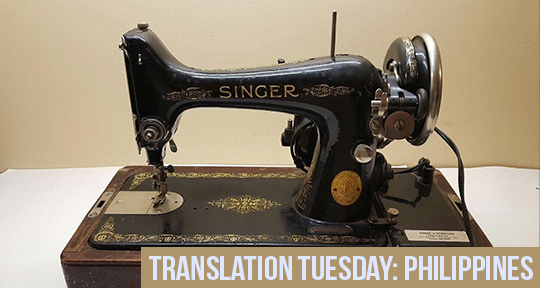In this week’s Translation Tuesday, a young woman’s sense of self-worth is prey to the forces of contemporary domestic servitude in Allan Derain’s “Anatomy of a Servant”. What begins as an endearing epistolary abruptly shifts to the perspective of our narrator, Asunta, as she seeks to build a better life for herself. The servant’s body becomes the target of dehumanization on the basis of class, gender, and nationality, until Asunta’s consciousness comes to internalize these repeated acts of violence as “necessary” and even “deserved”. Across these three short sections, Derain explores the classed anxieties of a dutiful daughter who longs for a brighter, freer future, though who also longs for home.
I. Empty-Headed
May 4, 2004
My Dear Asunta,
Before anything else, how is my good daughter? I hope you’re doing well. Are you eating on time? If you’re wondering, don’t worry about us. Marissa will be in high school the following school year. Your sister is looking for cash, so she now mans Tonga’s store. The money you have sent is enough, but we know that you are saving for something important. More people are asking me to sew, now that school is about to start.
You wrote in your last letter that the old man you attended to has already passed away. Does that mean that you can now come back home? Our fiesta will begin next week. I am part of the dancing group who will perform the Alembong in the parade. Don’t worry, and I’ll send you a picture so that it’ll be as if you were here in the fiesta . . .
This was what she always did: gazing out the window early in the morning. It was only yesterday she received the letter but by now, she had already read it countless of times as she faced the window. She glanced at her watch. She had thirty more minutes left to have the world to herself. READ MORE…




